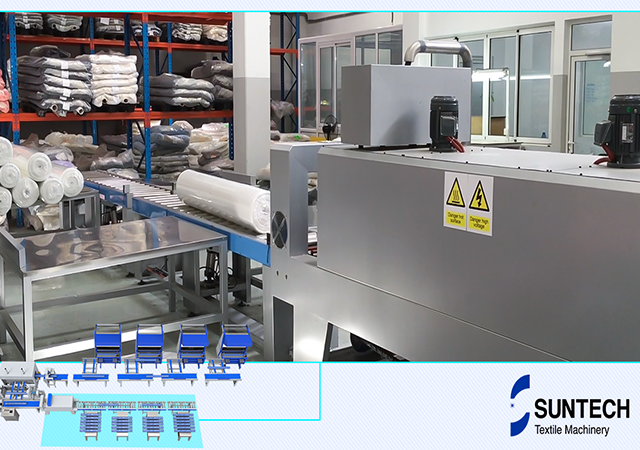In the dynamic realm of fabric make-up machines, intense competition among manufacturers propels continuous innovation and the introduction of cutting-edge products and technologies to maintain a competitive edge. The global fabric make-up machines industry, characterized by its competitiveness and fragmentation, boasts numerous small and medium-sized manufacturers alongside major players such as Juki Corporation, Brother Industries Ltd., Singer Corporation, Pfaff Industrial Sewing Machine Company, Durkopp Adler AG, and Yanase Co., Ltd., establishing their dominance in developed countries like Japan, Germany, China, and the U.S.
Emerging Industry Dynamics
The fabric make-up machines industry undergoes constant evolution, marked by the regular introduction of new technologies and developments. Staying abreast of the latest industry trends and innovations is crucial for companies aiming to stay ahead in this competitive landscape.
A recent trend shaping the industry is the advent of multi-purpose machines capable of cutting, joining, and sewing fabric pieces together. These versatile machines provide a significant advantage by reducing the need for multiple pieces of machinery, thereby saving both space and costs.
Another noteworthy trend is the increased adoption of computerized systems, enabling businesses to automate tasks such as pattern recognition and cloth cutting. Automation not only saves time but also minimizes the risk of human error.
Beyond these major trends, several smaller developments are enhancing fabric make-up machines. These include advancements in thread tensioning systems, automatic fabric feeding mechanisms, and improved safety features, collectively contributing to the efficiency and effectiveness of these machines.
Revolutionary SUNTECH Automatic Packaging Machine
An exemplary product in this landscape is the SUNTECH automatic packaging machine (ST-ARPM). This automated solution streamlines the packing process by incorporating full automation, achieving vacuum and automatic packing. Not only does it enhance efficiency by handling 3360 rolls per shift, but it also offers features like vacuum packing, labeling, smart sorting, and ERP connectivity, reducing the reliance on manual labor.

Market Landscape and Growth Prospects
The global fabric make-up machines market is poised to reach USD 3.48 billion by 2024, with a projected Compound Annual Growth Rate (CAGR) of 4.6% over the forecast period, according to Grand View Research, Inc. The textile industry's escalating demand for these machines is a key driver of market growth.
Asia Pacific emerged as the dominant player in 2015, maintaining its position throughout the forecast period. Factors such as population growth, improving economic conditions, and increased demand for textiles from industries like apparel and home furnishings contribute to the region's market growth. Additionally, the rising demand for technical textiles further propels market expansion in Asia Pacific.
The market segmentation encompasses types like weaving preparatory machines, spinning preparatory machines, knitting machines, sewing machines, and others. Knitting machines are expected to witness substantial growth due to their capability to produce diverse textiles with varying patterns and textures. Application segments include textile mills and factories, the apparel industry, the technical textile industry, and household use.
MarketsandMarkets forecasts a CAGR of 5.8% for the global fabric make-up machines market from 2018 to 2023. The Asia-Pacific region is anticipated to be the largest market during this period.




